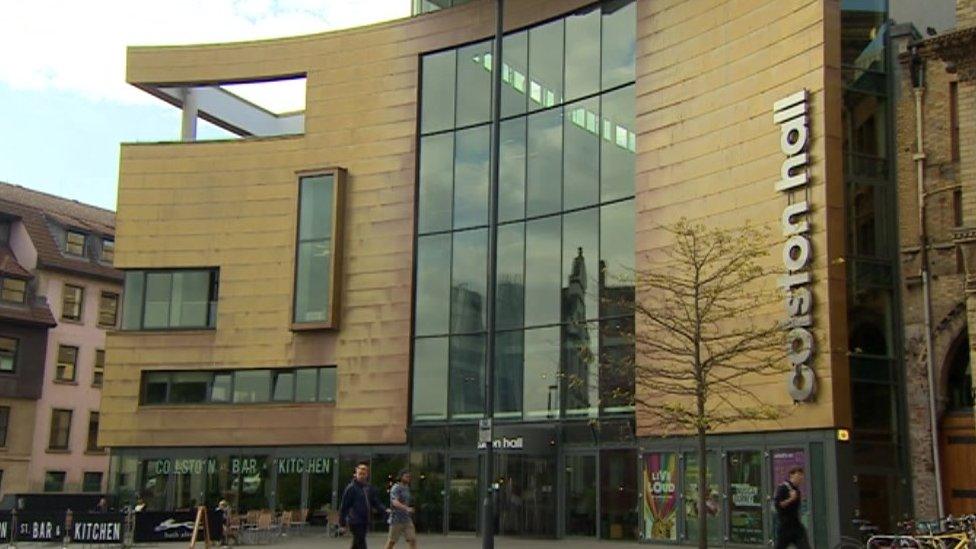Bristol MP calls for Edward Colston statue to be removed
- Published
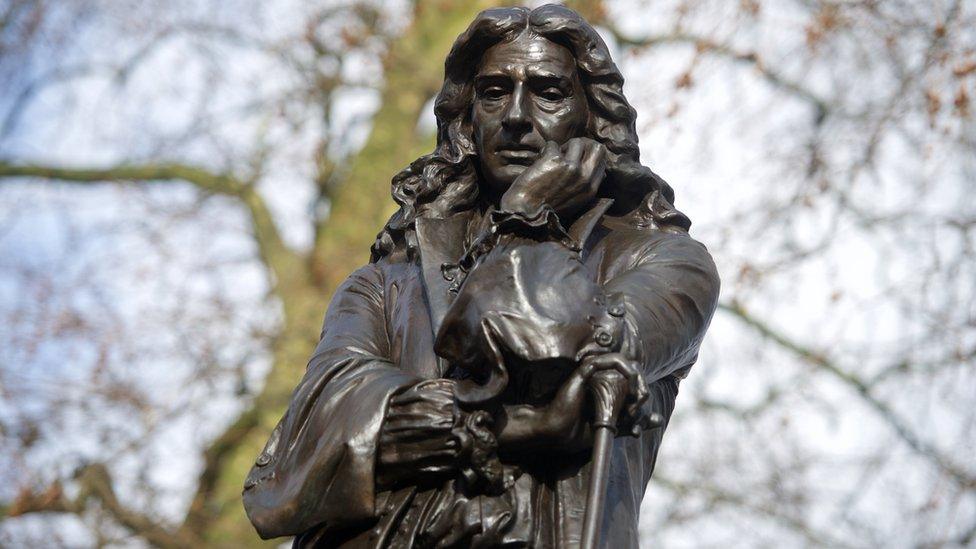
The statue of the slave trader and philanthropist was erected in 1895
A Bristol MP has called for the removal of a statue honouring the slave trader Edward Colston.
Thangam Debbonaire, the Labour MP for Bristol West, said the city "should not be honouring people who benefited from slavery".
Edward Colston made his fortune through slave trading, and bequeathed thousands to charitable causes.
In April last year, Colston Hall announced it would ditch ties with the 17th Century slave trader's name.
Speaking at a Black History Month event at Bristol's City Hall, attended by Labour leader Jeremy Corbyn, Mrs Debbonaire said: "Having statues of people who oppressed us is not a good thing to be saying to black people in this city.
"Edward Colston did many things, but he was not completely defined by that, and it's an important part of saying to black people in the city 'you are welcome'.
"I think it actually provides a good opportunity for us as a city to talk about that history."
On the Colston Hall name change, Mrs Debbonaire said she was "really glad it's happening".
"I know it's controversial, but the world's not going to fall down because we're renaming some buildings," she added.
Bristol City Council, who administer statues in the city, had planned to add a second plaque to the statue.
The authority has been approached for comment about Mrs Debbonaire's comments.

Who was Edward Colston? (1636-1721)
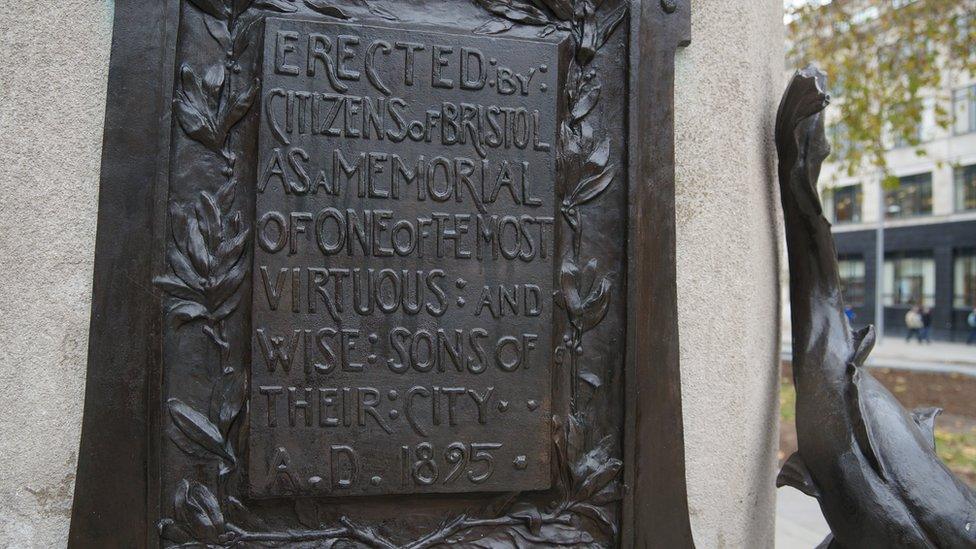
The plaque on the Victorian statue dedicated to him makes no mention of the thousands of slaves he traded
Colston was born into a prosperous Bristol merchant's family and, although he lived in London for many years, was always closely associated with the city
By 1672, he had his own business in the capital trading in slaves, cloth, wine and sugar
A significant proportion of Colston's wealth came directly or indirectly from the slave trade
In 1680, he became an official of the Royal African Company, which at the time held the monopoly in Britain on slave trading
He donated to churches and hospitals in Bristol, also founding two almshouses and a school
Colston also lent money to the Bristol corporation and was a city MP for a short time
Source: BBC History/Nigel Pocock
- Published25 July 2018
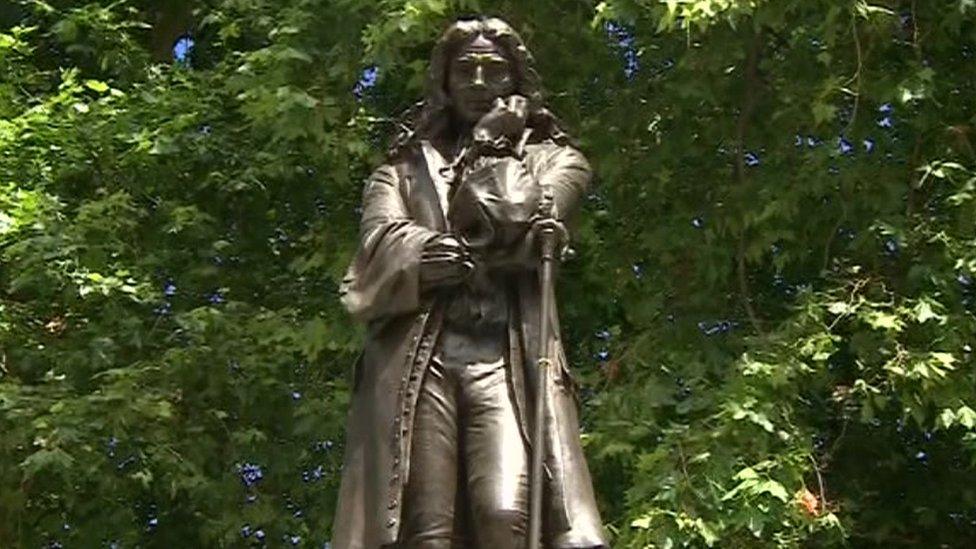
- Published24 July 2018

- Published8 June 2020
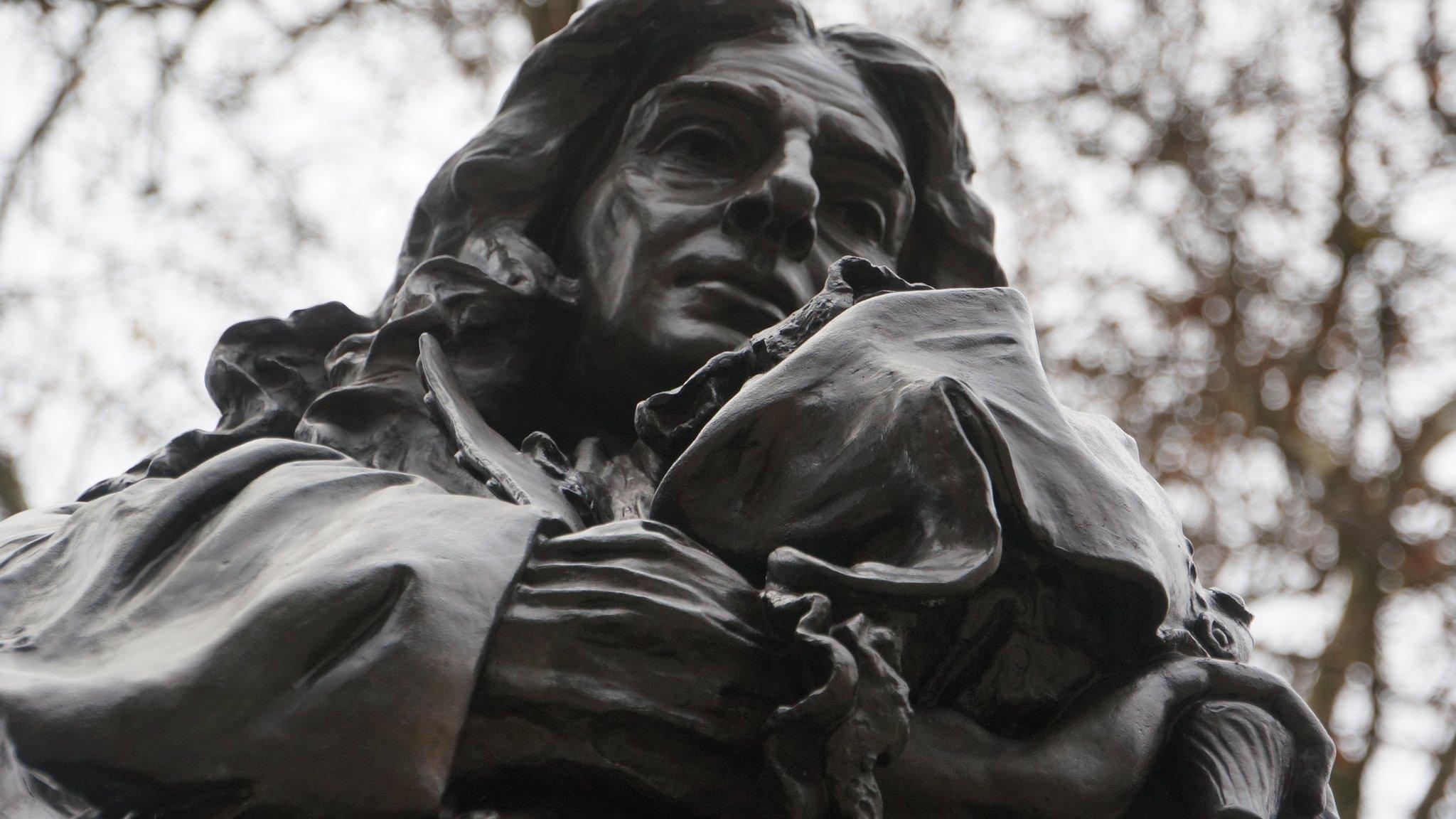
- Published1 December 2017
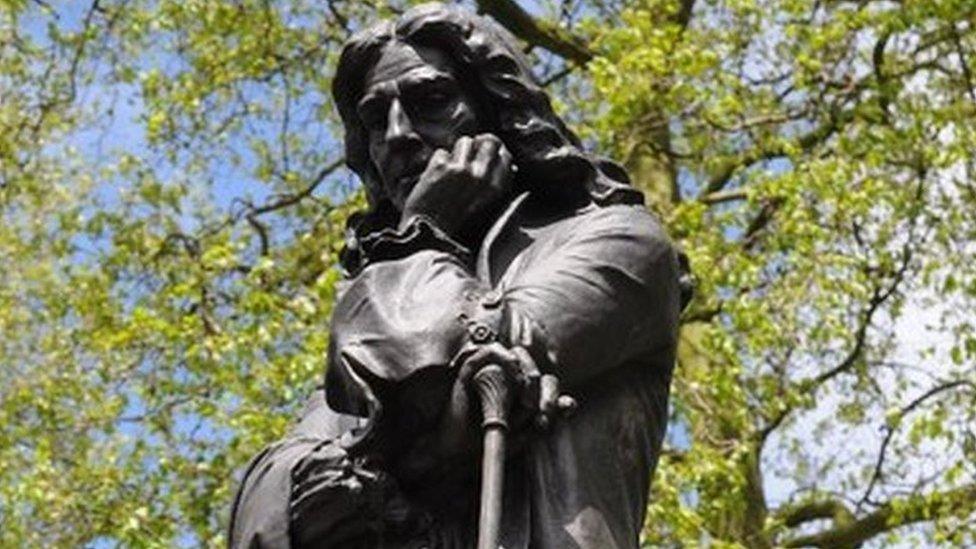
- Published3 November 2017
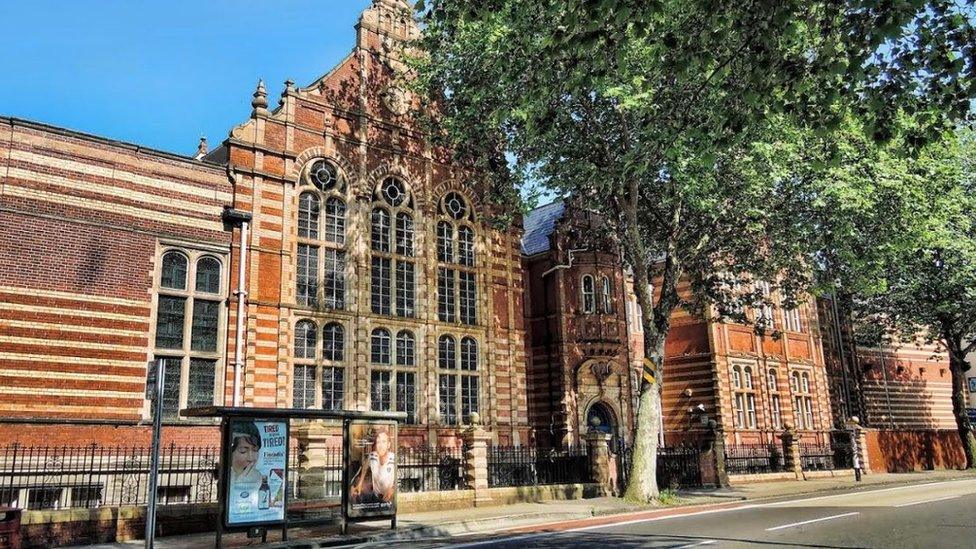
- Published26 April 2017
